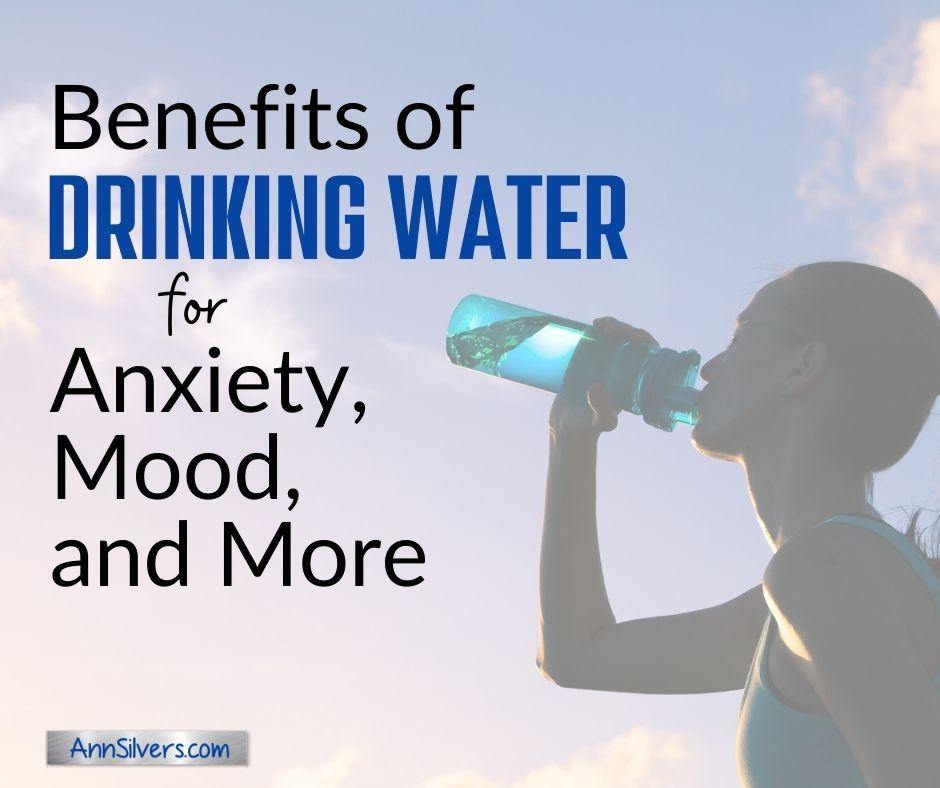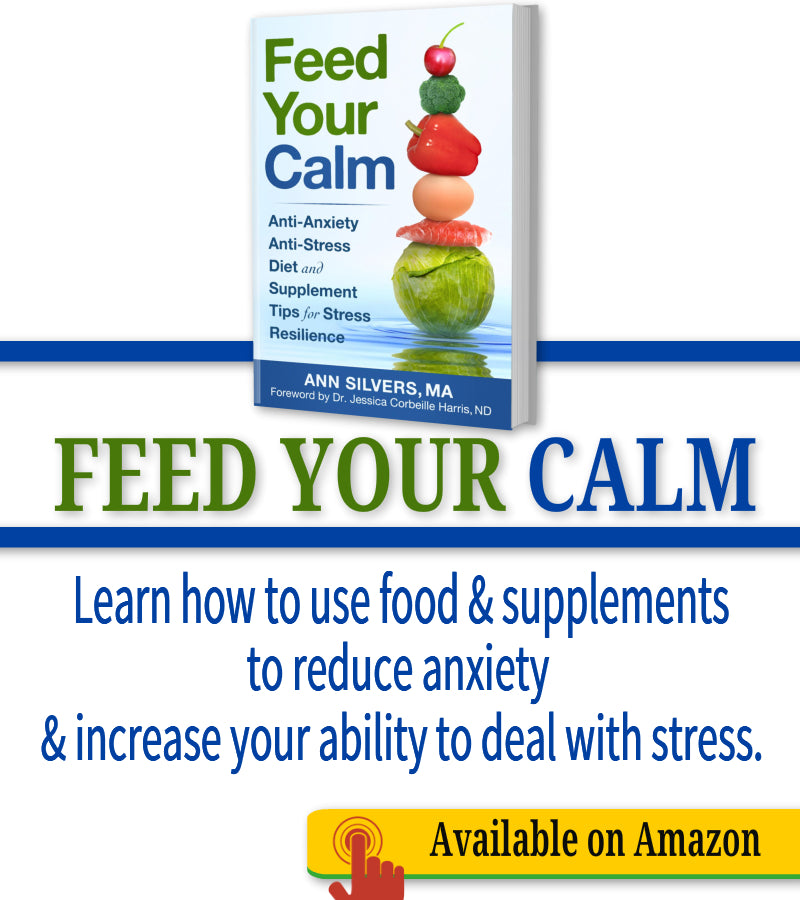Can Simply Drinking More Water Relieve Anxiety & Boost Mood?

Your body is mostly water. If you don't get enough water, you don't feel as good as you could physically or mentally.
I spent 4 years researching and writing Feed Your Calm, a book about the impact of diet on anxiety and specific anti-anxiety foods and supplements. The number one recommendation on my list of anti-anxiety foods is . . . water.
There are lots of other foods to add to your diet, or subtract from your diet, to help you be more stress resilient and reduce anxiety, but getting enough water is a simple place to start.
Hydration for Anxiety and Health: Science-Backed Benefits, Foods, and Daily Needs
| Why is Water Necessary to Your Body? |
| Research-Based Health and Mood Benefits of Drinking More Water |
| Can Dehydration Cause Anxiety and Stress? |
| Do Foods and Beverages Count as Water Intake? |
| Top 20 Hydrating Foods: Fruits and Veggies with the Highest Water Content |
| How much water is enough? |
Why is Water Necessary to Your Body?
“60 percent of our bodies is composed of water, 75 percent in our muscles, 85 percent in our brains, it’s like oil to a machine.” -- Dr. Roberta Lee.
All your organs and glands need water.
Water transports biochemicals throughout your body. It moves nutrients to the spots they are needed, and moves toxins and reaction leftovers out of your body.
Research-Based Health and Mood Benefits of Drinking More Water

Water benefits your health, mood, ability to deal with both physical and mental stress, and your longevity.
Research has shown that even mild dehydration can cause the following issues. (Click on the line item for related studies.)
- Gastro-intestinal problems
- Headaches
- Blood glucose issues
- Blood pressure and heart issues
- Depression
- Anxiety
- Decreased ability to deal with stress
- Decreased mental alertness and concentration
- Memory problems
- Reduced endurance
- Reduced motivation
- Fatigue
- Impaired sleep
- General ill health
Can Dehydration Cause Anxiety and Stress?
If you don’t take in enough water throughout the day, you hamper cellular function and stifle your body’s ability to create neurotransmitters and hormones required to deal with stress.
Dehydration also stresses out your body. That adds to your stressor load and can lead to anxiety symptoms.
While I was researching the relationship between food and anxiety for my book Feed Your Calm, I interviewed a nutritionist who said her first question for her clients with anxiety is, "Are you getting enough water?" And her follow-up advice is: "You need to be getting water throughout your day."
Water took the #1 position on my top foods for anxiety relief and stress resilience list.
Do Foods and Beverages Count as Water Intake?
You get about 20% of your water requirement from food. That percentage goes up if you consume more fruits and vegetables. The rest comes more directly from liquids.
Beverages that contain caffeine don’t count towards your water intake because caffeine is a diuretic (it pulls water out through your kidneys).
Soda definitely doesn't count. It's full of negatives.
Broths in soups and non-diuretic herbal teas do count.
Top 20 Hydrating Foods: Fruits and Veggies with the Highest Water Content
Many fruits and vegetables are packed with water—some are over 90% water by weight!
Adding more of these foods to your diet can support your body’s hydration needs while delivering important nutrients.
Here's a quick-reference list of the top hydrating foods and their water approximate content.
I was surprised by some of the results when putting together this list. I expected cucumbers and lettuce to be high ranking, but I didn’t realize radishes, cauliflower, mushrooms, and several other veggies were so water-rich.
| FOOD | % WATER | FOOD | % WATER |
| Cucumber | 96% | Cauliflower | 92% |
| Iceberg lettuce | 96% | Mushrooms | 92% |
| Celery | 95% | Watermelon | 92% |
| Radishes | 95% | Strawberries | 92% |
| Zucchini | 94% | Cantaloupe | 90% |
| Tomatoes | 94% | Broccoli | 90% |
| Spinach | 92% | Peaches | 89% |
| Asparagus | 92% | Oranges | 87% |
| Bell pappers | 92% | Kale | 87% |
| Cabbage | 92% | Carrots | 87% |
For water content on more foods, Dr Axe has an extensive list: 52 Hydrating Foods to Help Maintain Fluid Levels & Avoid Dehydration.
How much water is enough?
The answer to the how much water is enough question varies with your activity level, heat exposure, and body size. A common guideline is the number of ounces that equals half your body weight measured in pounds.
Body weight in pounds divided by 2 = number of ounces water
For example: 150 lbs divided by 2 = 75 oz.
Disclaimer: This post is NOT intended as medical advice. It is always advised to seek input from personal medical professionals.
- Ann Silvers








Comments 0